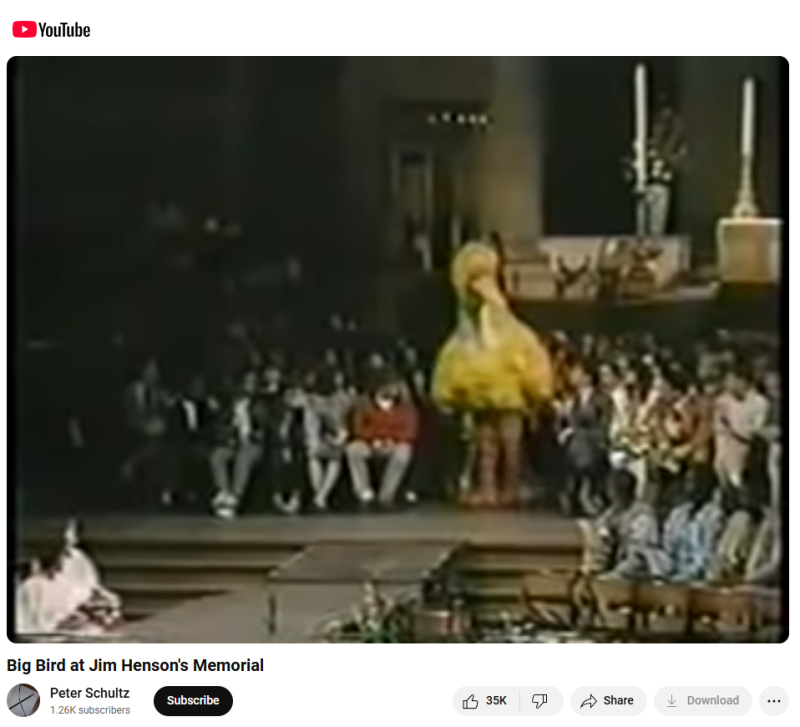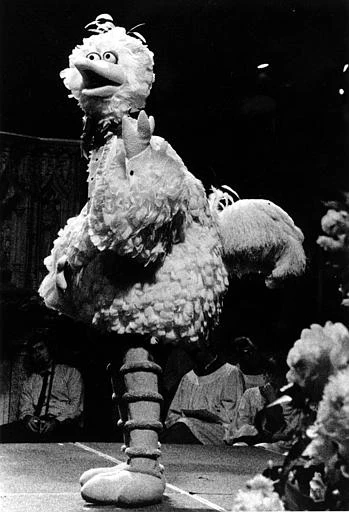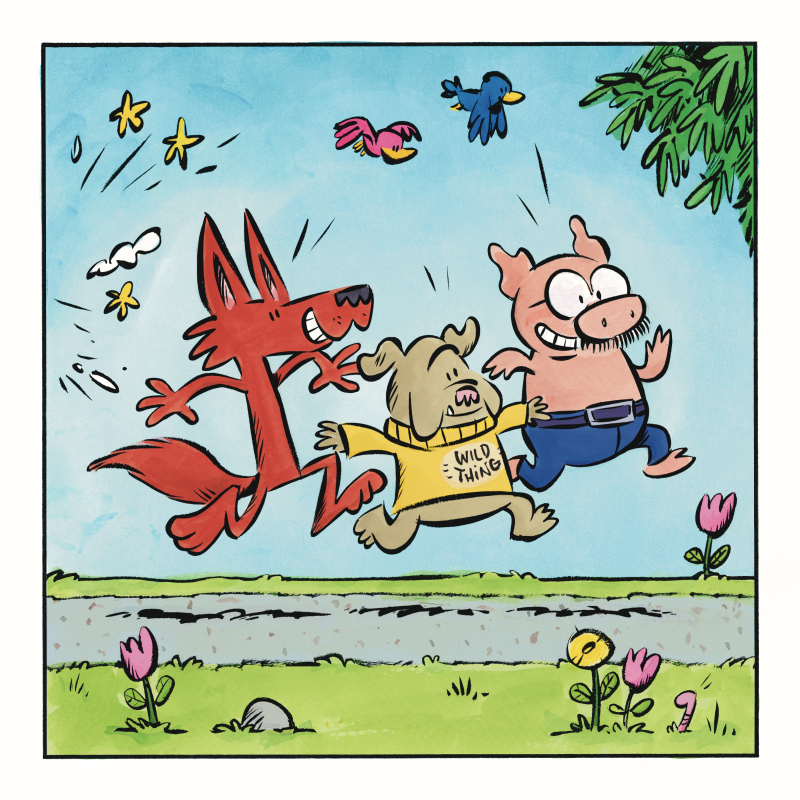Back in 1990 a memorial service was held for Jim Henson. The event was broadcast on PBS, where I watched it. I was invested in the moment because I was a big Muppet fan and (separate from just Sesame Street) found a lot of comfort in PBS. So there I was, in Revelstoke, in our home’s basement rec room, standing in front of the TV watching one of my heroes being laid to rest on my favorite TV station.
I grew up Catholic and was an altar boy for many years and served at a lot of funerals so much of the ceremony was familiar to me but I think I remember feeling detached. At some point, Big Bird walks down the aisle to deliver his eulogy. As he does he turns to someone in the congregation and does that funeral nod people do in these situations. I immediately think, “Ya ruined it, Big Bird. Ya ruined Jim Henson’s funeral.”

You see, Big Bird, at the time, was six years old. And if you’ve ever seen a six-year old tasked with this kind of responsibility, you know they perform it with an intense earnestness. A six year old would have fixed their eyes on the podium and made their way there solemnly. I would have.
Big Bird’s nod was not just an adult affectation, that kind of sympathetic “I know” people give to one another at funerals, it was also a specific kind of move that, to me, draws attention to the artifice of puppeteering. I didn’t know that the puppeteer who performed Big Bird was Caroll Spinney, an indisputable master of his craft, but in that moment I believed whoever was working Big Bird made a poor choice.
When a piece of art or performance grabs me, I go all in. Few people can suspend disbelief as high as I can—there’s video evidence of me shouting myself hoarse at professional wrestling matches—but if a piece of art doesn’t grab me, then all it takes is the slightest small thing (something as small as a nod) to make me say “Ya ruined it”. And I never know what that one thing is going to be.

So, why are we talking about this? Well, I went into this blog post with the idea of asking myself how I’m going to react to criticisms of my own work. JIM! is on the cusp of being reviewed widely (as of writing this, I have already received my first review… it was forwarded to me three days ago, it went live today) and I know the prospect of bad reviews are something that can cause a lot of authors a lot of stress. All the same, I’m not sure I have anything interesting to say on the subject! Maybe it sounds phony or falsely brave, but I’m less concerned with how many stars the book gets than I am with what the reviewer takes away from it. The aforementioned review… it was good. Very good. And I’m grateful. But what moved me most (and there’s video evidence of me being moved) was that the reviewer appeared to understand exactly what I set out to do with the book. I’m thankful for their review—if it’s not too corny to say it, I felt seen.
Perversely, I’m looking forward to the slightest small thing in JIM! that’s going to land the first “Ya ruined it, Jerrold!” in my lap. People’s personal peccadillos are unpredictable, but I think I know what’s going to do it:

Uneven wardrobe choices among my characters (eg. pants, no shirt versus shirt, no pants, versus completely nude). I mean, really, what was I thinking?!
